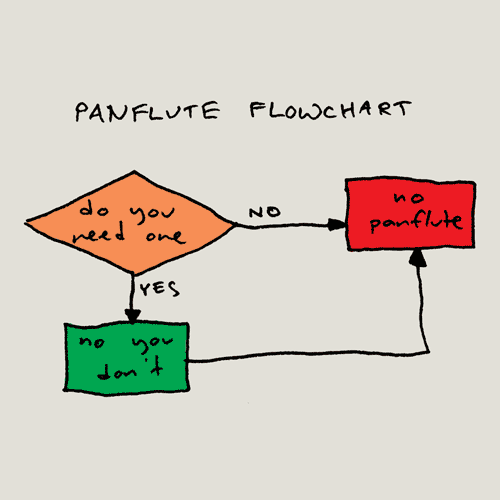Panflutes
by Javier on 1/03/2010This one made me laugh.

(We love )
Just another WordPress site
A simple video with some of the Braun/Rams stuff that coincidentally arrived to my place on the same day.
Translated from the original:
I write novels. And I work everyday as well as I can. This is a job, not a gift from God. I’m not an artist. I have a moral obligation to myself and to those who read me. I have to focus on that and not going around theorizing on literature, which I don’t give a damn about.
And the original quote, in Spanish:
Yo escribo novelas. Y trabajo todos los días y lo mejor que puedo. Esto es un trabajo, no un don divino. No soy un artista. Tengo una obligación moral conmigo mismo y con la gente que me lee. Tengo que concentrarme en eso y no ir por ahí teorizando sobre literatura, que me importa un carajo.
How to sell a car with a camera and a little bit of imagination…
Thanks Daniel
This is the email you get from Floresfrescas.com when you purchase flowers:

We are kinda proud of how it is designed. Its main goal is to minimize uncertainty. Some of its virtues:
Confirmation emails are a very important part of a purchase process and sometimes are ignored by interaction designers. Do you have any good examples of this? How would you improve the Floresfrescas one?




I just turned off Buzz.
It took me a while to understand why I didn’t like it and then I realised it’s quite a simple reason. Google Buzz, like Twitter or Facebook are for entertainment while Gmail is mostly work.
When I want to concentrate I usually shut down anything distracting and focus on what I may be doing whereas it’s sketching, designing, writing emails, proposals, etc. I usually have a break every 10-15 minutes. Something short, just to check my planetaki, twitter and perhaps facebook (that happens less often). Everything is on separate tabs so work and distractions don’t get messed.

And then came Buzz with this bold number of “buzzs” right next to the number of messages in my inbox so every time I checked if there was eny new email I’d see that there was some fun going on at the Buzz Cantina and I couldn’t concentrate. I couldn’t have my Continuous Partial Attention the way it was supposed to be, in moderate intervals.
And friends, that is why I am shutting down buzz. Not because I don’t like it (in fact I really hate facebook for what it has and Buzz lacks) but because it’s too invasive, just like my friends throwing a party at our studio at office hours.
Now for a search engine redesign by Yusef Hassan:

Where Search does a “classic search”, Re-find looks on what I already have seen (and starts digging on my social info up in the cloud) and Discover does te opposite bringing results I’ve never seen before.
It makes sense to me, ¿Does it to you?
I think of UCD (User-Centered Design) a little as I think of Christianism. The fact I’m an atheist today does not stop me from recognizing that some Christian values have shaped my worldview and my belief system in very positive ways.
Ariel Guersenzvaig, who knows me well and understands my take on user-centered design, refered me to Apple’s Secret? It Tells Us What We Should Love, an article that questions UCD as a tool for radical innovation. I’ve been moving from true believer in UCD to these positions over time and, although I think it’s easy to use Apple as an example, I consider this article by Roberto Verganti full of true statements:
User-centered innovation is perfect to drive incremental innovation, but hardly generates breakthroughs. In fact, it does not question existing needs, but rather reinforces them, thanks to its powerful methods.
Firms that create radical innovations make proposals. They put forward a vision. In doing that, of course, they take greater risks.
Thanks to this process these companies are serial radical innovators. Their non-user-centered proposals are not dreams without a foundation. Sometimes they fail. But when they work, people love them even more than products that have been developed by scrutinizing their needs.
User centered-design (observation, interviews, user testing, etc. ) is for those who want to improve something existing, not for those who want to create something new. Those need to understand human nature but don’t need to microscope every little behavior and take it as a starting point.